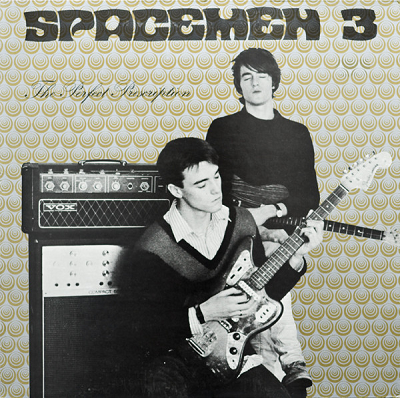3. Spacemen 3The Perfect Prescription

Just saying that record name is like a time machine. I’m transported back to 1987-88. I left Oxford and my parents’ home and was living in a shared student accommodation going to do my Art Foundation course with Mark Gardener and Loz Colbert from Ride. Mark got a room in a house, and he’s like, “It’s brilliant, you got to live down here,” so we managed to find ourselves a group of people at art school who all wanted to get together and do a shared house.
When we got this house, I was so buzzing to be living away from home that I said I’ll have whatever room and sure enough, ended up with a shit room, the smallest bedroom right at the back. I brought my posters from Oxford. I had a Jesus And Mary Chain, The Smiths, Stone Roses, and then there was this Spaceman 3 poster. Blu Tack would not work on these walls because they were so damp, so I nailed my posters to the wall. I’m there in this in this cell, listening to The Perfect Prescription.
It has a similar musical palette that runs right through it. There’s a lot of space, a lot of hushed, quiet sounds and then it goes up to crescendos and lots of use of tremolo, which is one of the first times I really kind of figured out what that was. That kind of in and out stuttering sound on a guitar and keyboard, which is very hypnotic. It was a way of doing psychedelia in a new way. There was nothing cliched about it, nothing 1967 about it, but all the criteria of psychedelia were met in a different way.
I love music that turns you on to other music. They did a lot of cover versions. There was a Red Krayola cover. They’d also co-opt tunes, like The Stooges and Lou Reed, where they’d take on board the guts of a song and write and play a new song over the top. It was a very transparent homage to earlier music. People don’t realise what it was like in the ‘80s but when you were a teenager in the ‘80s you didn’t have the internet to research music on, you just had to hear it or be told about or read about it. Musicians covering songs often was the way that you learn about other people’s music.


